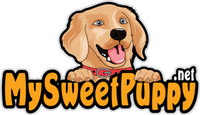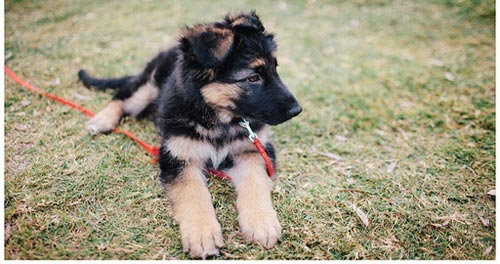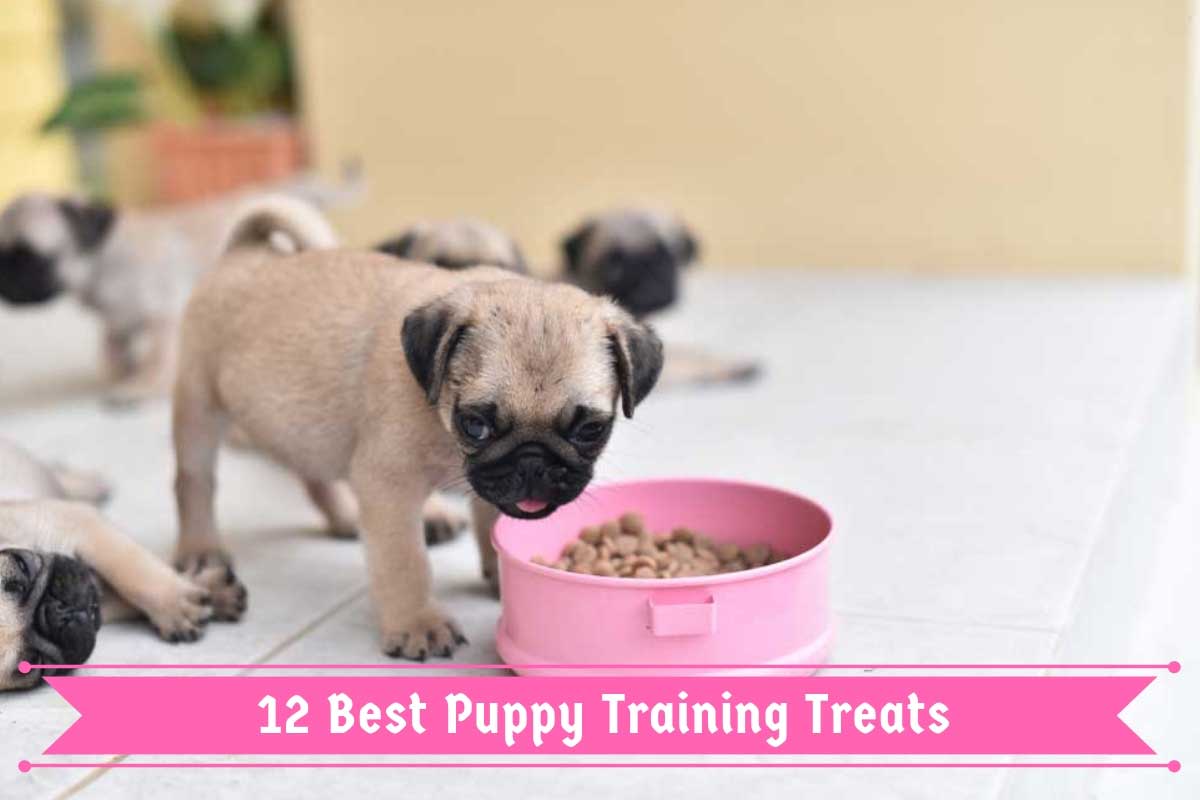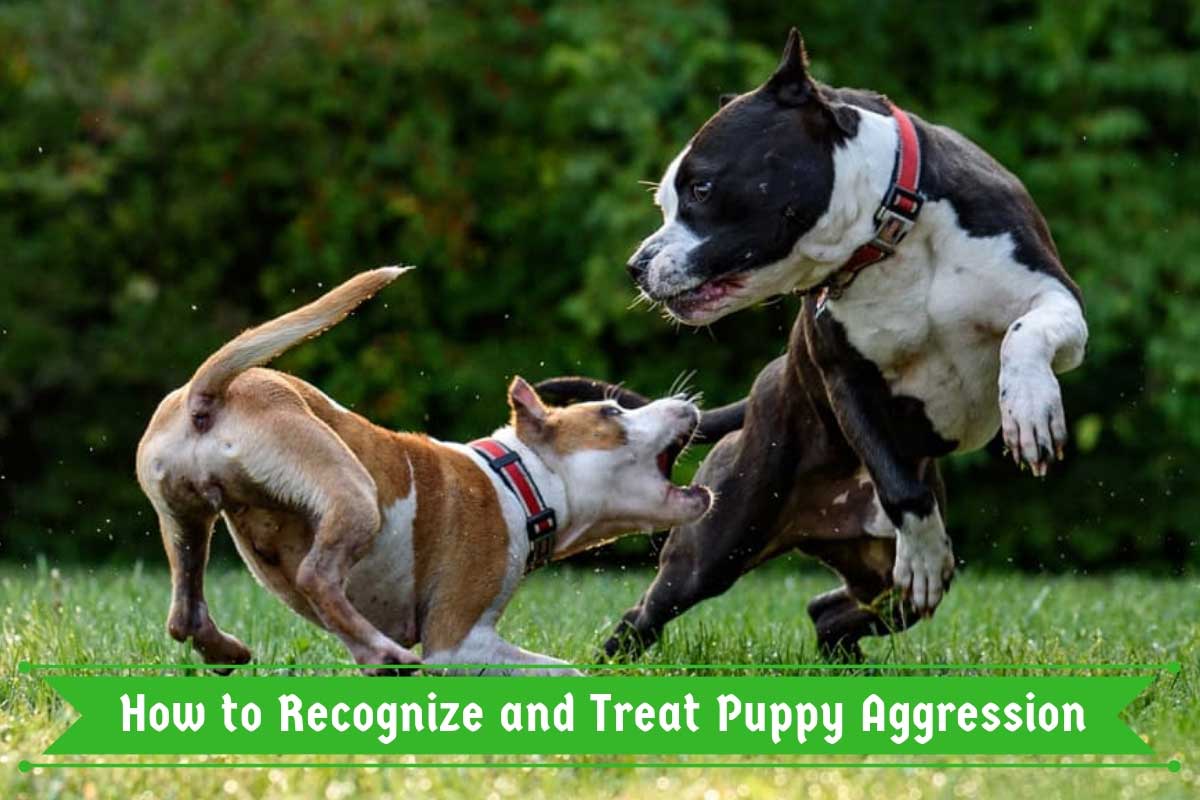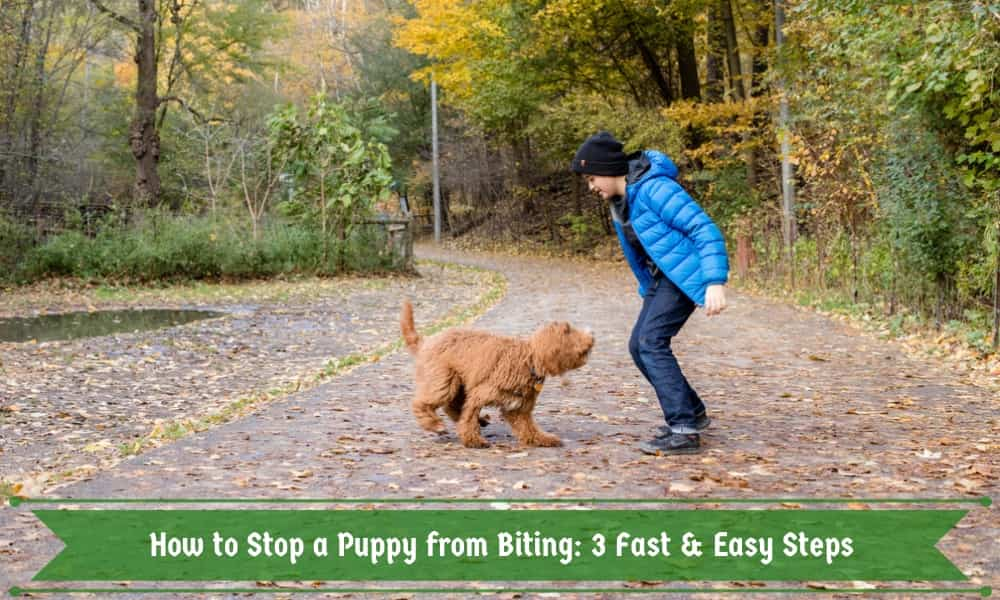
Puppies love to chew and bite. It’s their way of exploring the world, trying out food and even being playful for companionship. Nipping puppies are completely normal during play and exploration.
That said, biting isn’t a habit you want your pup to hold on to as they grow into an adult dog. If you don’t get started trying to help them unlearn the behavior when they’re young, it will be a lot more difficult to stop them from biting as they get older.
Luckily, training your puppy dog not to bite doesn’t have to be a headache. Here are our 3 fast and easy tips to stop a puppy from biting and nipping during playtime.
When trying these methods, keep in mind that all family members need to be following your plan. If there isn’t consistency between everyone’s response, your puppy won’t break the biting habit.
Contents
Method #1: Teach Your Pup to Bite or Play Softly
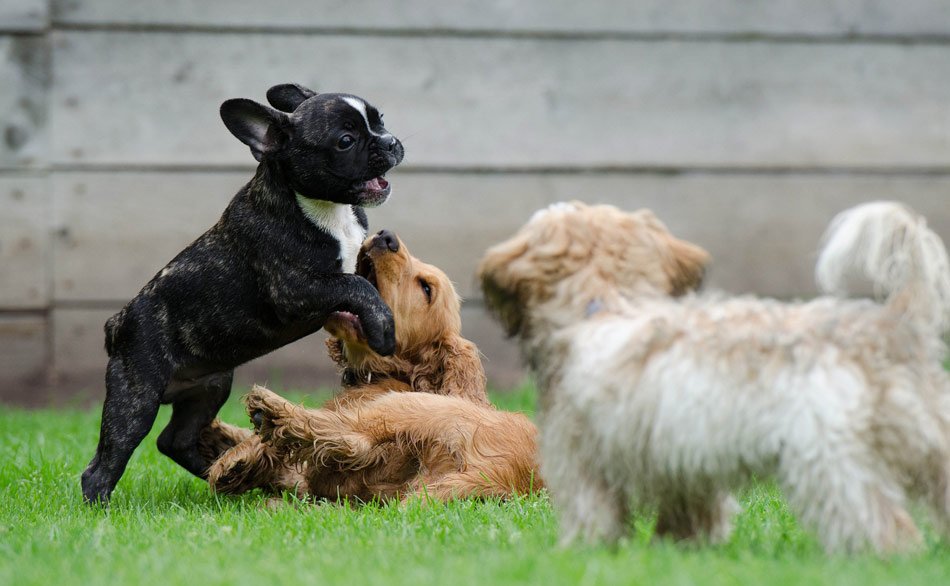
This first method is more commonly known as bite inhibition. This teaches your dog the different mouth pressures of biting as well as what’s appropriate and when it’s appropriate.
It’s important to keep in mind that if your puppy is under 6 months old, it may be teething. Just like when a baby is teething, your pup is experiencing sore gums which is why it tends to chew on anything and everything nearby. This is perfectly normal behavior from your pup.
True biting and hard biting usually happen when your puppy is being playful. They’re still young and not aware of how hard they’re biting or that it’s hurting you.
Since play biting is normal, teaching your puppy bite inhibition is one of the best methods to use.
If your pup is around other puppies, they may learn bite inhibitions on their own. When they play with another puppy and start to bite too hard, the puppy lets them know with a loud yelping noise and refusing to play with your puppy any longer.
This is the same method you can utilize to teach your puppy the pressure of their teeth and the pain it’s causing. The last thing your puppy wants to do is hurt you. They just want to love you and play with you.
When you’re playing with your pup and they take a bite into your hand with extreme pressure, use a cue word that lets them know they hurt you. That cue word can be “ouch” or “stop”. Always use the same word during this process.
Once you use your cue word, refuse to play anymore with your pup until after they’ve settled down.
Once your pup is calm, give them positive feedback with a praising tone of voice and a treat. This shows them that settling down was the correct thing to do. After refusing to play with your pup several times, it will get the hint that it’s hurting you and that’s not okay.
It’s important not to use your pain cue word and isolation when they only bite softly or they’re nibbling on you. This is natural play for a puppy.
Method #2: Use a Chew Toy for Play
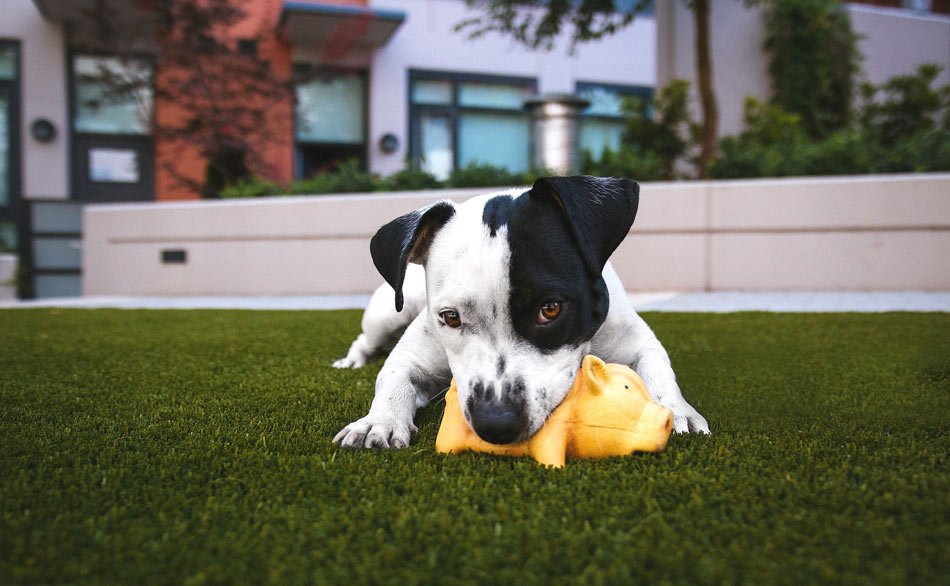
The next method involves using a chew toy when your puppy feels like roughhousing.
If your puppy isn’t learning to bite softly using method #1, try substituting an appropriate chew toy during playtime instead of playing with your hands.
There are numerous great chew toys on the market made just for puppies, particularly teething pups, including nylon toys that are easy on puppy teeth and toys that you can freeze that provide pain relief for your pup’s sore gums and achy teeth.
Using a tug-of-war rope is a great substitute for playing with your hands, especially if your pup’s over 6 months old and all their adult teeth have come in.
Every time your pup is playing too rough, pull out their chew toy. After several times of using this method, it will learn to find a toy when it wants to play rough and bite hard.
Method #3: Use a Leash to Teach Boundaries
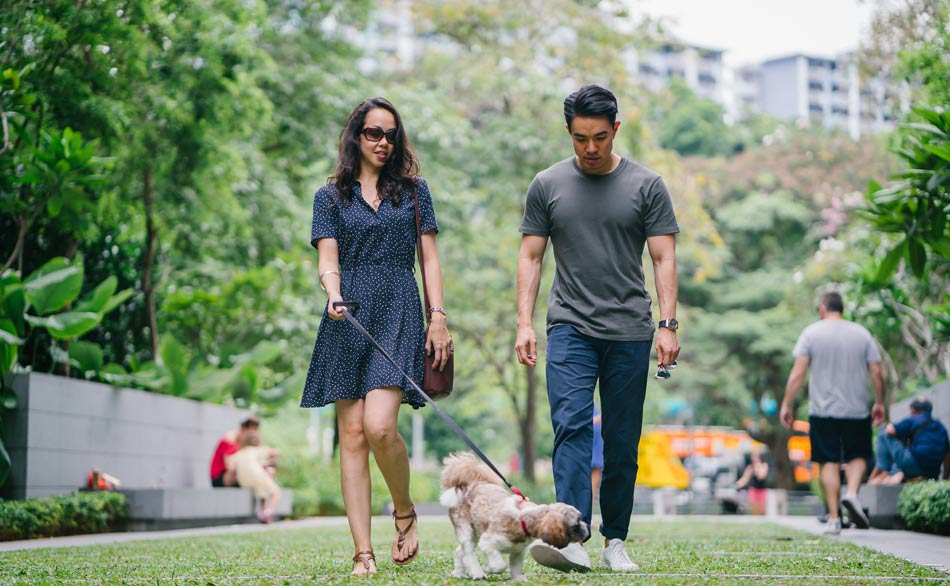
Using a leash can help teach your pup boundaries, including when it comes to roughhousing and biting. This method is particularly helpful if your puppy tries to continue hard play once you’ve told them “no” and you’ve walked away.
Use a leash when you play with your pup.
So, when your puppy bites you next time, walk away without them trailing behind you thinking that playtime isn’t over.
Just like you would with the normal bite inhibitions method, once your puppy bites too hard, let them know you’re hurt.
Then, walk away. When your pup has calmed down, praise them and offer them a treat.
Never Use Anger or Pain
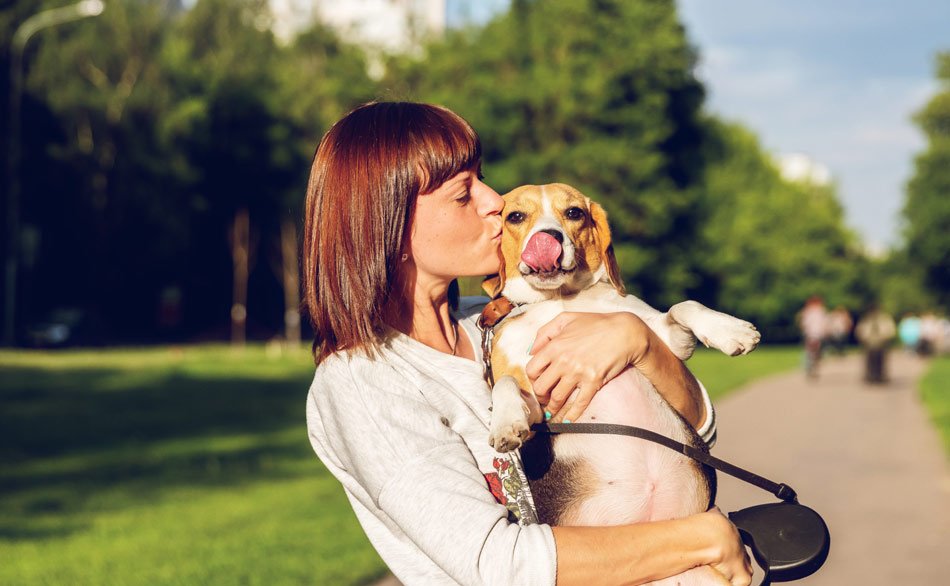
It’s never okay to discipline your pup with anger. This means no hitting, yelling, or any type of serious negative feedback.
For some dogs, negative feedback can lead to anxiousness which can cause more aggression in your pup. Fear and anxiety are the top two reasons that dogs bite or attack.
It’s also possible that your puppy might interpret your angry behavior as more roughhousing, causing it to bite even harder.
Regardless, it just isn’t very nice to hurt your dog or anything, really. If you wouldn’t treat a child this way, you shouldn’t treat a puppy this way either.
The Bottom Line
These simple methods and tips should help you stop your puppy from biting. Puppies want to play and that’s natural but you need to help them see when they’ve gone too far.
I grew up in a household that was filled with animals. I believe that my fate as a dog-loving person was sealed in early childhood since my parents owned several dogs of varying sizes and breeds. There was no choice but to take care of and learn about dog habits and the best animal care practices — otherwise, I’d be clueless about how to go about the creatures I was surrounded by day and night.
As a life-long puppy lover, I know a thing or two about dogs and how to go about caring for them in the best way possible. Although I’m not a professionally trained dog behaviorist, trainer, or veterinarian, all of my knowledge and experience with canines comes from a place of love and a deep-rooted passion for dogs and animals in general.
Seeing as dogs kept me company throughout every stage of my life, I decided to follow a different path in my academic life and obtained a Bachelor’s and Master’s degrees in Marketing Management and Digital Advertising, which ultimately allowed me to combine my professional training and personal experience by creating the ultimate dog lover’s resource website! Along with my husband, Dave, I run MySweetPuppy for like-minded dog lovers who want to have a single, clear, and reliable information source about anything and everything related to dogs and their well-being.
